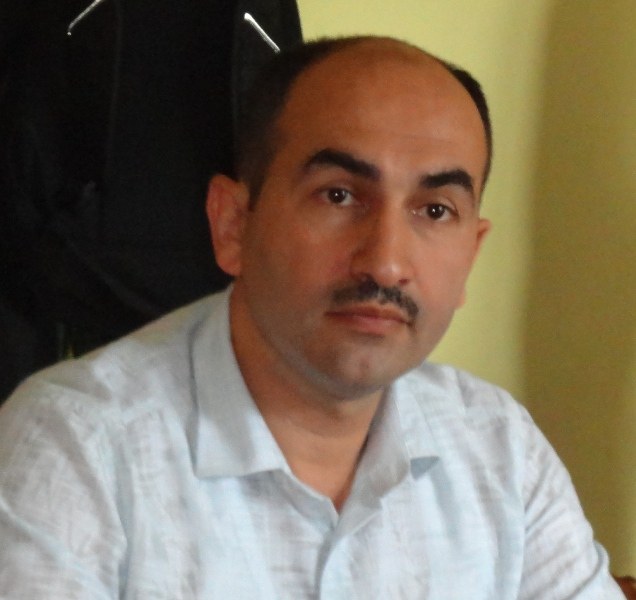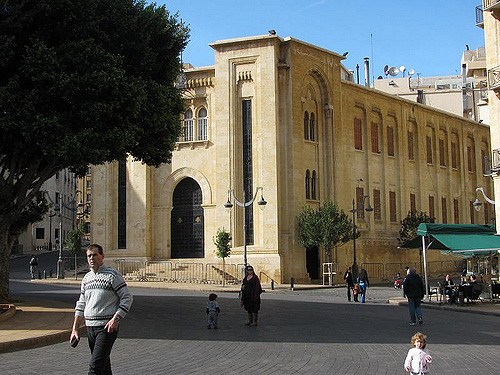News and resources
Explore our publications on a wide range of topics, to find the powerful facts, stories and approaches that underpin our work to make the extractive industry more open, accountable and participatory.
Elchin Abdullayev
Forced to Flee for Aiding Activists Elchin Abdullayev was an election observer in Baku in October 2003 when he was arrested for compiling evidence of election violations and openly protesting against them. He was thrown in jail and tortured so badly that he had to be hospitalized. This ordeal motivated him to work with various […]
Open Letter to Minister of Natural Resources Carr & President of the Treasury Board Brison on Open Data
Dear Minister of Natural Resources Carr & President of the Treasury Board of Canada Brison, As Publish What You Pay ‘Data Extractors’, we are writing as a group of activists from around the world, united in our desire to use data from the oil, mining and gas industries to hold governments and companies to account, […]
Using Illicit Financial Flows to increase accountability
In 1994, Illicit Financial Flows (IFFs) were a major threat to South Africa’s development agenda. Today, Africa’s huge external debt problem can be partially blamed on lost revenue due to illicit flows. A United Nations Economic Commission for Africa (UNECA) report noted that Africa’s external debt stood at $279 billion in 2008 and that debt […]
Drilling for Peace
The violent price of oil exploitation in the Middle East and North Africa 17 December 2010 marked the day when Tunisian street vendor Mohamed Bouazizi set himself on fire in the city of Sidi Bouzid; a desperate reaction against a corrupt government that took place in a resource-curse-ridden area of Tunisia. On 27 January 2011, […]
Gebran Bassil when asked about oil deal: No deal!
This article was originally posted by LOGI and can be read here Lebanese civil society asked the Lebanese Minister of Foreign Affairs and Emigrants, Gebran Bassil, during a public conference to clarify fears and rumors that could lead to corruption in Lebanon’s oil and gas sector … more information and his reaction below: On September […]
BG Group’s payments to the Government of Tunisia, 2015
Inquiry from the Tunisian Coalition for Transparency in Energy and Mines to the Government of Tunisia Questions for the Government of Tunisia: BG Group has reported US$101,365,000 (US$7,199,000 in kind plus US$94,166,000 in cash) in total payments to the Government of Tunisia during 2015 (Report on Payments to Governments for the Year 2015). Of these […]
Fact Sheet – SEC Final Rule for Section 1504
On June 27, 2016, the US Securities and Exchange Commission (SEC) voted to approve regulations to implement Section 1504, or the Cardin-Lugar Amendment, of the 2010 Dodd-Frank Financial Reform and Consumer Protection Act. Section 1504 requires any oil, gas or mining company filing an annual report with the SEC to disclose their country and project-level […]
Oil and gas drama in Lebanese Parliamentary workshop unearths three underlying issues in sector
On August 23, drama and havoc broke out in a workshop hosted by the Lebanese Parliament’s energy committee. Accusations of lack of coordination and transparency between Mohammad Qabani, head of the parliamentary energy committee, and members of the Lebanese Petroleum Administration (LPA) quickly deteriorated and led to the LPA’s withdrawal from the meeting. While a […]
Breaking the Norm: A wake-up call for Lebanese Civil Society
Mistrust, anger, accusations, secrecy, and frustration are but some of the vocabulary that civil society in Lebanon should feel pretty comfortable using when asked to describe the prenatal condition of its oil and gas sector. Amidst the bickering of those entrusted with overseeing the smooth running of the nascent sector, the Lebanese public stands on […]
Lebanon oil and gas political deal: LOGI demands clarifications and transparency
When conversations are held behind closed doors, especially in Lebanon, suspicion heightens. In July and, reportedly, again in August 2016 Speaker of the Parliament Nabih Berri met with Foreign Minister Gebran Bassil to smooth tensions and disagreement over how Lebanon’s oil and gas sector should move forward. By some accounts a “deal” was reached, yet […]
With Mandatory Disclosures, More Open, Granular Oil Price Data
This blog was also posted on the Natural Resource Governance Institute website and the Open Oil website. It was written by David Mihalyi and Anton Rühling. Many oil-rich countries’ governments reap huge and notoriously opaqueproduction revenues. In the past, transparency initiatives were limited to exposing tax payments. However, EITI reports and company disclosures are exposing […]











